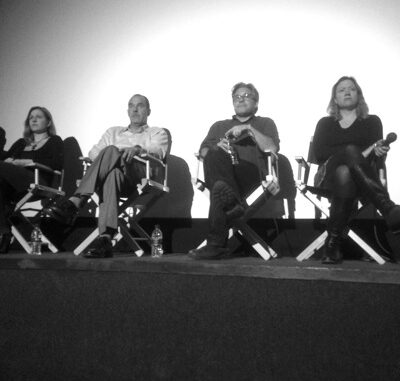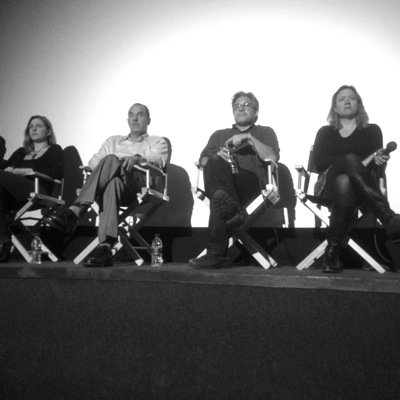
The drone of planes and a missile attack forces an interview with a distraught mother in Syria to be suspended for a few moments. Once the immediate danger is over the interviewers get back to work. Welcome to the world of the Human Rights Watch E-team.
Next time you sigh at the length of the passport queue in front of you at the airport, be grateful you don’t have to approach the border, run from a taxi, step carefully over spirals of razor wire and leap in a waiting car to enter a new country. That’s how activists Ole and Anna entered Syria to start documenting the human rights abuses that were taking place.
E-team was shown at the Curzon Soho as the centrepiece of the London Human Rights Watch film festival, which runs until 28th March. It is a documentary co-directed by Katy Chevigny and Ross Kauffman following the work of members of HRW’s own Emergencies team. This has existed since the Kosovo crisis and is a group of experienced activists who enter countries as soon as there are reports of abuses. They do not wait until the dangers are over before heading into war zones to find out and publicise the truth about what is happening.

Anna Neistat, Peter Bouckaert and filmmakers Ross Kauffman & Katy Chevigny at the festival Q&A
HRW has 410 employees in different roles but this film follows activists Fred Abrahams, Peter Bouckaert, Ole Solvang and Anna Neistat. They are doing difficult, unpleasant, dangerous work and are portrayed as heroes. These are the good guys doing what they can to fight back against dictators. The focus isn’t just on their work in Syria, Libya, Kosovo and other war zones. As though a constant barrage of images of death and destruction would be too much the film makers have included scenes from the activists’ personal lives. In particular, in a presumably unscripted development, the home life of Anna and Ole becomes a theme, giving the film a natural conclusion.
E-team tells the stories of the Emergencies team which is only one part of the work of Human Rights Watch. The activists are clearly brave and doing a dangerous job. Even when the process is slow they take comfort in the fact that their work has influenced international policy and helped bring people such as Milosevic to court.
E-team is being shown again tonight (25th March 2014) at the Barbican 18.30

Leave a Reply